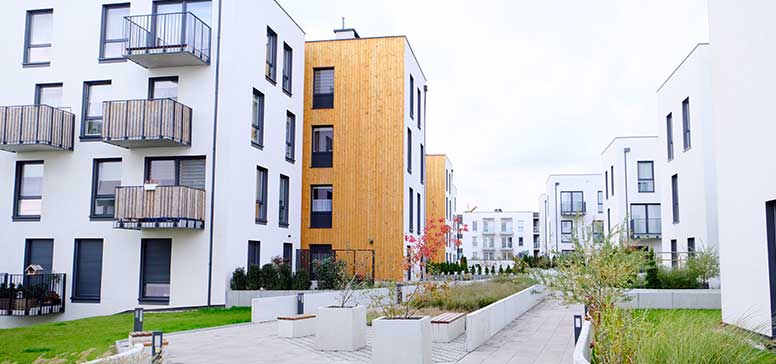Just How to Settle Problems in an HOA Condo Setup
Just How to Settle Problems in an HOA Condo Setup
Blog Article
The Duty of an HOA in Establishing and Enforcing Area Guidelines for Residents
The duty of a Homeowners Organization (HOA) in developing and implementing community standards is basic to keeping a orderly and natural household setting. By developing clear regulations that control elements such as residential property maintenance and area conduct, the HOA not only sets standards for locals however also promotes a feeling of belonging and accountability.
Recognizing Home Owners Organizations
Homeowners associations (HOAs) offer as controling bodies for residential areas, playing a crucial duty in preserving residential or commercial property values and cultivating a sense of community. Typically created by designers, HOAs are made up of house owners within a designated location who elect a board to supervise the association's activities. The primary features of an HOA consist of implementing community policies, managing usual areas, and arranging neighborhood occasions.
HOAs run under a set of controling files, consisting of commitments, restrictions, and problems (CC&R s), which describe the civil liberties and responsibilities of homeowners. These laws aim to make sure that residential properties are maintained to a specific criterion, thereby safeguarding the visual allure and overall worth of the area. Furthermore, HOAs often gather fees from home owners to fund maintenance, landscaping, and other area solutions.
The visibility of an HOA can considerably influence the living experience within a community (hoa condo). While some citizens value the organized environment and facilities supplied, others might discover specific guidelines limiting. Stabilizing the passions of all homeowners is vital for an HOA to operate efficiently, ensuring that it offers its intended function of improving neighborhood living while appreciating private property owner legal rights
Establishing Neighborhood Guidelines

To start, an HOA must perform studies or convene that enable homeowners to voice their problems and tips. This participatory procedure cultivates a feeling of possession and raises conformity. Next off, the HOA board have to assess the responses to recognize usual styles and top priorities that require official inclusion in the guidelines.
It is likewise necessary to make certain that the standards are clear, concise, and quickly comprehended. Uncertainties can result in misunderstandings and conflicts, threatening the function of the guidelines. Furthermore, the standards need to be detailed, covering various aspects of area living, consisting of building upkeep, noise degrees, and use common areas.
Enforcement of Rules
Reliable enforcement of neighborhood rules is critical for keeping order and making certain that all citizens follow the developed guidelines. An HOA has to execute an organized technique to apply these policies, which typically involves a combination of surveillance, communication, and fines for non-compliance.
First, routine examinations and neighborhood patrols can aid determine offenses, guaranteeing that rules are continually applied across the area. This proactive surveillance enables the HOA to resolve issues before they rise, fostering a sense of liability among locals.
2nd, clear interaction is important. Locals need to be informed of the guidelines and the treatments for reporting offenses. An open line of communication encourages locals to voice worries and look for information on guidelines, which can boost conformity.

Finally, when infractions happen, the HOA should implement effects as laid out in the controling papers. This might consist of alerting letters, fines, or, in severe instances, lawful activity. It is crucial that charges are applied fairly and regularly to maintain trust within the area. By effectively implementing regulations, an HOA can grow a harmonious living environment that reflects the cumulative values of its locals.
Advantages of HOA Regulations
Many advantages occur from the execution of HOA guidelines, which offer to enhance the top quality of life within a neighborhood. One main advantage is the upkeep of residential or commercial property worths. By imposing standards for aesthetics and maintenance, HOAs ensure that homes and usual areas continue to be appealing, fostering a preferable living setting that can cause increased residential property values with time.
Additionally, HOA guidelines promote consistency and harmony within the community. This comprehensibility in layout and maintenance assists to develop a sense of belonging among homeowners, contributing to neighborhood satisfaction and a positive environment. In addition, established guidelines facilitate conflict resolution amongst next-door neighbors by providing clear expectations you can try this out and methods for behavior, thus decreasing disagreements.
An additional substantial advantage is the provision of shared amenities and services. Numerous HOAs take care of neighborhood facilities such as pools, parks, and clubhouses, which enhance recreational opportunities for locals. These features not just enhance the lifestyle yet likewise motivate social communication.
Eventually, the guidelines established forth by an HOA cultivate a well-organized, harmonious neighborhood, ensuring that More Bonuses locals appreciate a high standard of living while fostering a helpful environment for all property owners.
Common Challenges Faced by HOAs
Among the benefits that homeowners organizations (HOAs) can provide, they additionally experience a variety of difficulties that can hinder their performance. Numerous home owners may not get involved in meetings or area tasks, leading to a detach in between the HOA board and homeowners.
One more obstacle is the enforcement of guidelines and laws. Disputes can emerge when locals really feel that enforcement is irregular or biased, potentially leading to disputes within the area. Additionally, HOAs often deal with economic constraints, which can limit their capacity to keep common areas or fund area tasks. This can develop dissatisfaction amongst residents that anticipate high criteria of upkeep.
Furthermore, browsing legal intricacies can be intimidating for HOAs. Developing and transforming demographics neighborhood needs call for HOAs to adapt their standards, typically fulfilling resistance from enduring homeowners who are accustomed to typical norms.
Verdict

By developing clear regulations that govern aspects such as residential property upkeep and community conduct, the HOA not just establishes criteria for locals however additionally fosters a feeling of belonging and liability.Homeowners associations (HOAs) serve as regulating bodies for household communities, playing an important duty in keeping home worths and cultivating a sense of community. Numerous house owners might not get involved in conferences or area tasks, leading to a disconnect between the HOA board and residents. Developing and altering demographics neighborhood needs need HOAs to adapt their guidelines, typically satisfying navigate to this website resistance from enduring citizens who are accustomed to traditional standards. Via the advancement of clear regulations and constant enforcement, HOAs promote building maintenance, community satisfaction, and trust amongst homeowners.
Report this page